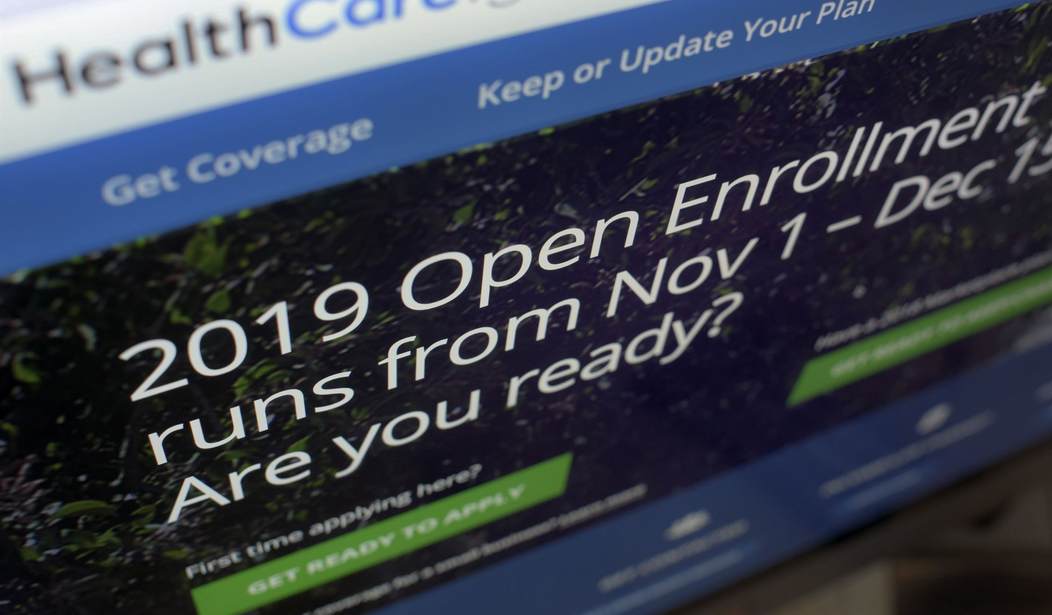Editor's note: This column was authored by Chris Medrano.
Americans from every walk of life have good reason to dread the rising cost of medical care. Thankfully, in 2018 the Trump administration gave people more options by loosening restrictions on a less expensive plan type, called short-term plans. These plans aren’t required to follow the Affordable Care Act’s (ACA) mandates, which is why Obama heavily restricted them in 2016 — to force more people into the ACA. But thanks to Trump’s deregulation, the CBO predicts that 2 million people will enroll in these plans by 2023.
Unfortunately, though, some politicians would like to see these plans restricted again.
They claim they’re a risk to consumers because they have fewer benefits and don’t comply with the ACA’s mandates. But these attacks are misplaced. Short-term plans can be great options for Americans who are in between jobs, self-employed, or simply don’t need all the mandates the ACA forces insurance plans to provide.
Moreover, outlawing short-term plans would force middle-class consumers to decide between coughing up thousands of extra dollars to insurance companies, or forgoing insurance altogether. To understand exactly why that’s the case, and why short-term plans were such a welcome relief to many consumers, it’s important to remember how the ACA’s mandates caused premiums to soar.
The mandates require insurance companies to cover a greater number of benefits and limit how much insurers can charge people with preexisting conditions. Predictably, that caused premiums to rise. A 2017 Forbes article cites Ehealth data showing premiums in the non-group market rose dramatically the four years after the ACA’s regulations went into effect. Premiums for plans covering all ages rose between 56-63.2% each year from 2013 to 2017. For perspective, premiums for the same plans rose by less than 10% the four years before the ACA went into effect.
Recommended
Middle-class Americans who make too much to receive any subsidies to help pay for ACA coverage, then, are the ones who feel the full brunt of those premium increases. That’s why, according to the Wall Street Journal, 20% of people who didn’t qualify for subsidies left the ACA altogether in 2017.
Short-term plans, on the other hand, cost considerably less. In 2018, the Centers for Medicare and Medicaid Services noted “[the] average monthly premium for an individual in the fourth quarter of 2016 for a short-term, limited-duration policy was approximately $124, compared with $393 for an unsubsidized individual market plan.”
Many on the Left call short-term plans “junk insurance” because they don't offer as many benefits. This argument ignores the fact that the real choice for many consumers isn’t between having insurance with robust or fewer benefits, but between having some coverage or none at all. More importantly, it overlooks how many short-term plans do in fact offer quality coverage — in some cases, better than ACA plans.
In a May 2019 report, Chris Pope, a healthcare expert at the Manhattan Institute, wrote that short-term plans are often Preferred Provider Organizations (PPOs) — a type of plan that usually gives patients access to a greater number of doctors and hospitals. By contrast, ACA plans are often Health Maintenance Organizations (HMOs), which usually have narrower networks of providers.
One major reason ACA plans have narrower networks is that the ACA’s mandates encourage insurance companies to dilute the quality of their plans to avoid sick people — a phenomenon Cato Institute scholar Michael Cannon has written on at Health Affairs. One report from Avalere reveals 72% of ACA plans have narrow networks. This underscores how the ACA’s one-size-fits-all approach to insurance has unintended consequences that harm consumers.
Despite the clear demand for short-term plans, many politicians continue to exhibit a paternalistic attitude toward consumers. Rather than acknowledging how the ACA’s higher costs and narrower networks have hurt many Americans, they point to instances when patients who bought short-term plans were surprised to find the plan didn’t cover as much as they thought they would.
Insurance companies that commit fraud or purposefully mislead customers about the limits of their coverage should certainly be held liable. But outlawing short-term plans altogether would only harm those who receive coverage that fits their needs. Such proposals also ignore a fundamental problem of the U.S. healthcare system: All patients — even those covered by the ACA — are one accident or sickness away from massive bills. The demand for short-term plans and the ACA’s shortcomings demonstrate that more options — not fewer — are what patients need.
Chris Medrano is a writer and researcher in Arlington, VA and a contributor to Young Voices. His areas of interest include healthcare policy and political strategy. Follow him on Twitter @CJMedranski

























Join the conversation as a VIP Member